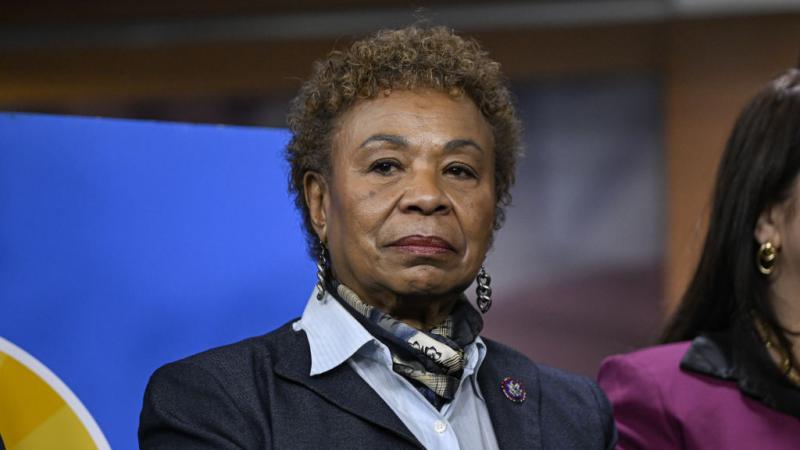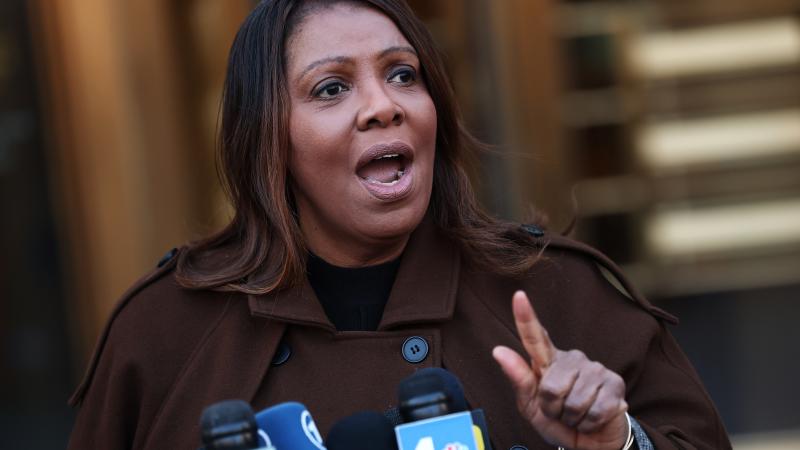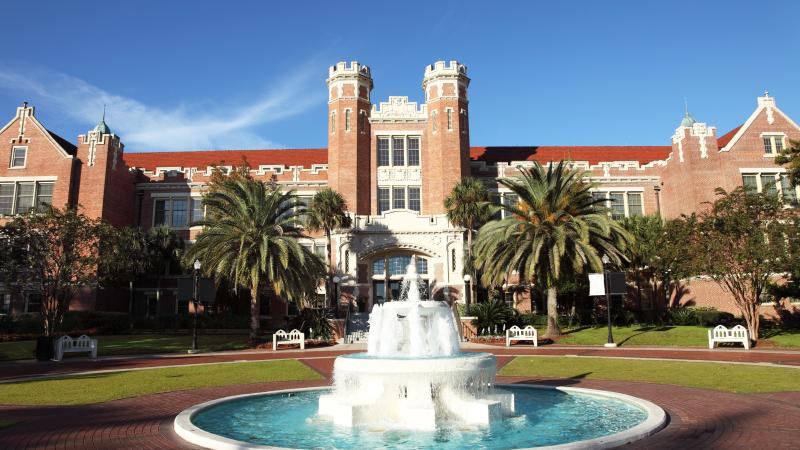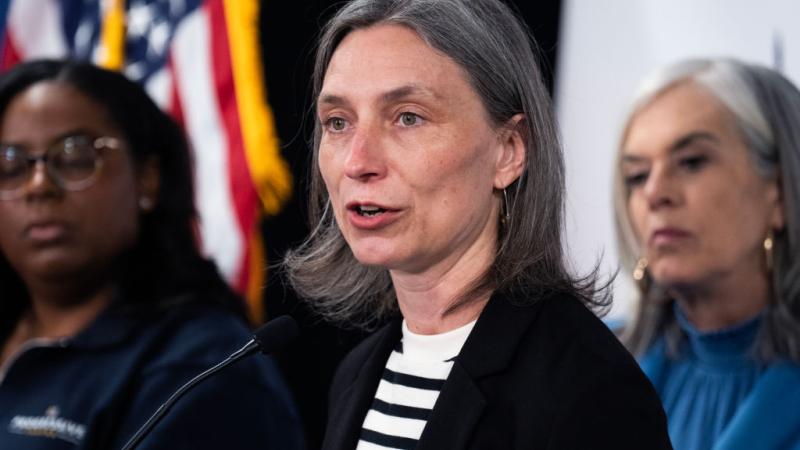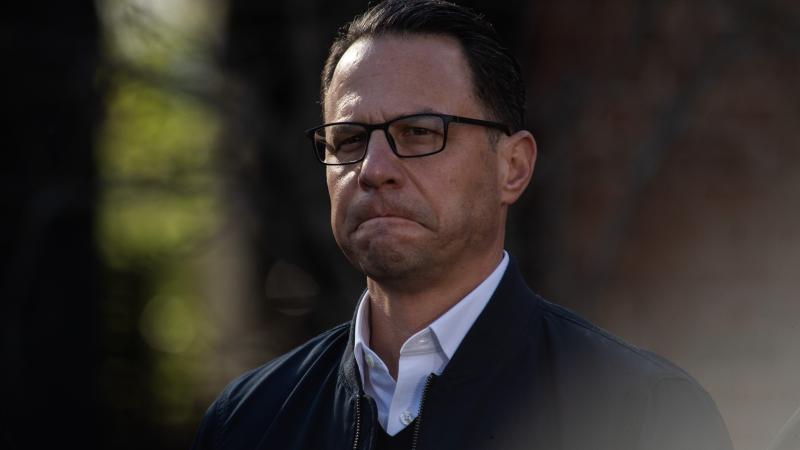Washington DC suburb eyes taxing residents for rain on their roofs, driveways, parking lots
Levy resembles failed measure in Maryland that helped turn governor's mansion red in liberal state.
For generations of Beatles fans, the lyrics to George Harrison's "Taxman" are biting satire:
If you drive a car, I'll tax the street
If you try to sit, I'll tax your seat
If you get too cold I'll tax the heat
If you take a walk, I'll tax your feet
For the city manager of Fairfax, Va., they are more like a how-to manual.
At a Nov. 30 City Council meeting, Fairfax City Manager Robert A. Stalzer proposed taxing local residents and businesses for the amount of rainwater that falls on their roofs, driveways, parking lots and other "impervious surfaces" on their property.
The proposal is similar to a measure adopted in Maryland, which contributed to flipping party control of the governorship and was repealed by the state Legislature two years after it imposed the tax.
Revenue for the city's stormwater fund is currently raised through a 3-cent fee charged as a portion of a property owner's real estate tax bill, totaling $2 million in annual receipts.
The $2 million "is not sufficient to meet the regulatory, infrastructure maintenance, and drainage improvement demands of the stormwater program," the city manager says. Rather than decrease costs or spending, he proposes increasing taxes based on a "fee for service approach" under which residents would pay in proportion to the surface area of their roof, driveway, parking lot, gravel and concrete surfaces, or any "manmade feature" that creates water runoff resulting from rainfall.
Referred to by many as a "rain tax," the proposal would establish a new enterprise fund "supported by customer fees that are based on the amount of impervious surface on a property," according to Stalzer's proposal. The taxable impervious surfaces apply to homeowners, small businesses, HOAs, nonprofits, churches, and disabled veterans.
Instead of saving some of the annual $2 million in stormwater revenue to fund the city's stormwater program, the city has already spent roughly $400,000 — 20% of its funds for the year — on advertising to convince residents that imposing a proportional rain tax is a good idea.
The proposed tax would be an additional $4.48 million levied on families and businesses in 2022. By 2027, residents would be paying an estimated $5.58 million in new taxes for rainfall and runoff. The tax would still be imposed even if there were a drought.
The proposal exempts city-owned buildings from liability for the tax, an issue of concern for Fairfax City Council Member Sang Yi. When Yi asked the city to disclose how much it would owe if it were to pay the rain tax like other taxpayers, he was told more than $1.4 million a year.
"Our city's commercial buildings, including apartment buildings, would bear a significantly larger burden of this new tax, which would be kicking businesses while they're down," Yi wrote in an op-ed for The Washington Examiner. "Keep in mind that while our commercial properties help keep residential property tax burdens lower, there was an overall market decrease of 5.3% for commercial properties in the city for the last quarter of 2020."
Yi suggests there are other ways to pay for the storm management proposal, including issuing bonds against future revenues, or using federal COVID-19 relief money. Cities like Fairfax can also apply for a grant through the federal infrastructure bill and may be eligible for a portion of the money the state will receive as well, according to the bill language.
Stalzer argues the tax "based on impervious surfaces will provide a more equitable fee structure while reducing the overall cost of service delivery across the City's rate base."
A rain tax is the last thing strapped taxpayers need now, Americans for Tax Reform argues. "For residents struggling with rising inflation, and small businesses battling a historic shortage of labor, a Rain Tax will only make life more difficult in the City of Fairfax," wrote Dennis Hull on the organization's website Friday. "Lawmakers should look to surplus General Fund revenue or existing real estate tax funds to support stormwater management programs, as they have done for years, rather than impose a new burdensome tax on families and businesses."
The city council is set to vote on the rain tax Dec. 14. Critics warn Councilmembers may not be in their positions much longer if they vote for the rain tax.
A similar tax structure was imposed in Maryland in 2013, but the tax wasn't uniform, and by 2014 state residents identified it as one of the most oppressive of the 40 new taxes that then-Gov. Martin O'Malley, a Democrat, had signed into law since taking office in 2007.
The rain tax was "one of, if not the most, unpopular taxes in Maryland," according to the National Federation of Independent Business. After it passed, one NFIB member was saddled with a $5,000 rain tax in one year, the association said.
By 2014, Maryland residents were fed up, and overwhelmingly elected a new Republican governor, incumbent Gov. Larry Hogan. In 2015, the Legislature voted — with only one dissenting vote! — to repeal the mandatory rain tax two years after it was implemented.

